
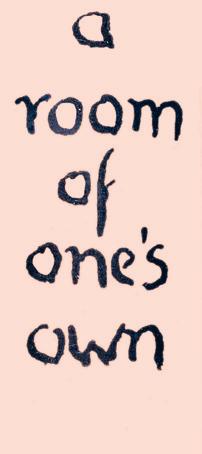
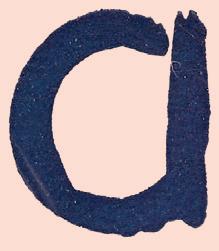
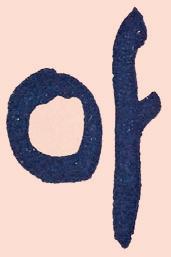

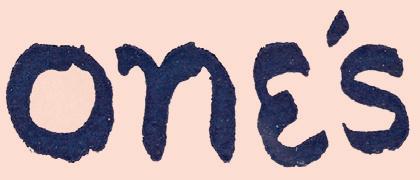
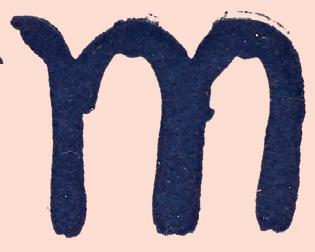
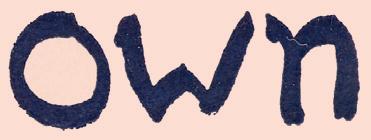


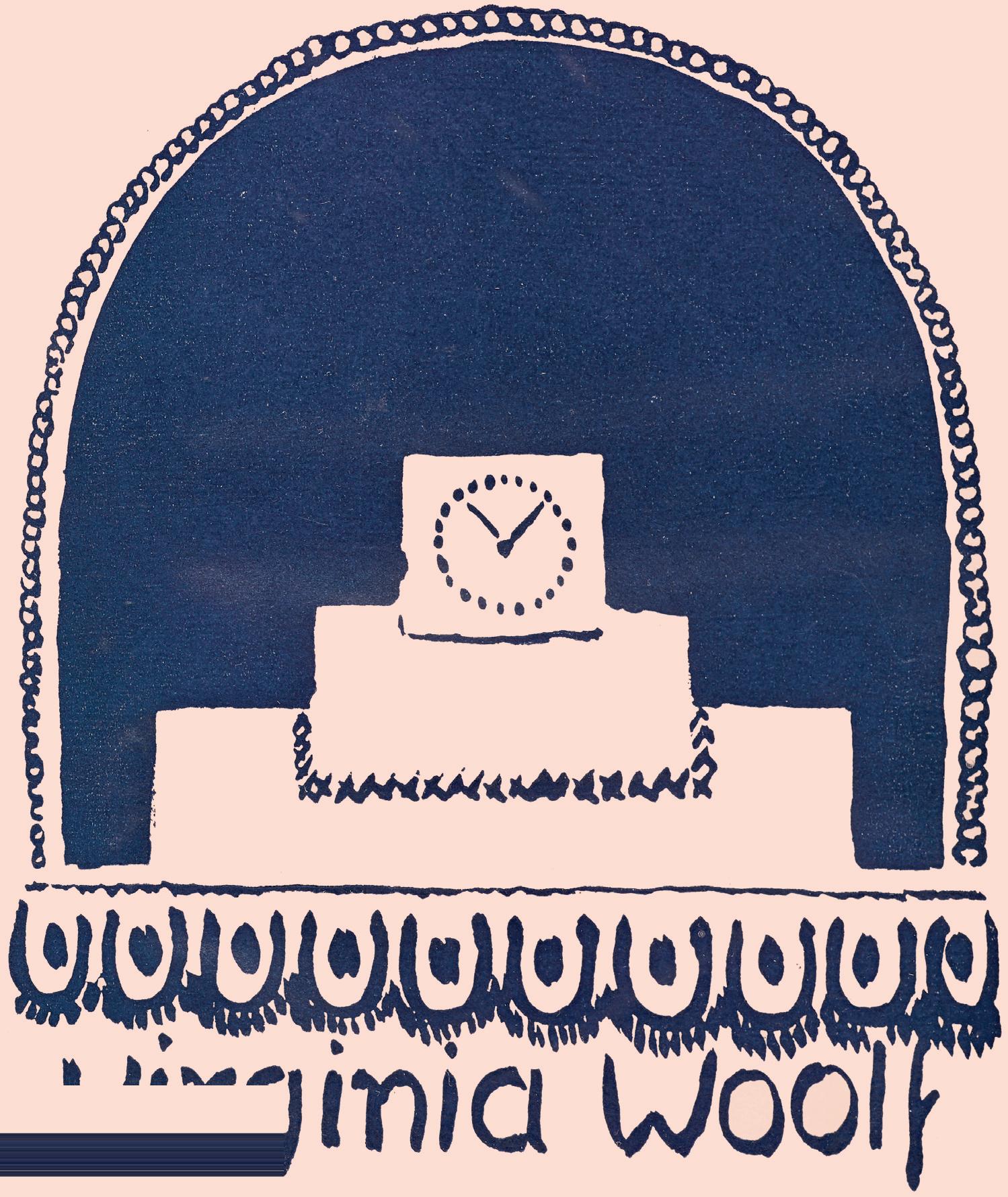
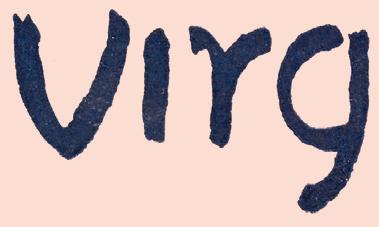













ALSO BY VIRGINIA WOOLF
Novels
The Voyage Out
Night and Day
Jacob’s Room
Mrs Dalloway
To the Lighthouse
Orlando
The Waves
The Years
Between the Acts
Shorter Fiction
The Haunted House: The Complete Shorter Fiction
Non- Fiction and Other Works
Flush
Roger Fry
The Common Reader Vols 1 and 2
Selected Diaries (edited by Anne Olivier Bell)
Selected Letters (edited by Joanne Trautmann Banks)
Street Haunting and Other Essays (edited by Stuart N. Clarke)
PUBLISHED BY LEONARD & VIRGINIA WOOLF AT THE HOGARTH PRESS, 52 TAVISTOCK SQUARE, LONDON, W.C. 1929
UK | USA | Canada | Ireland | Australia India | New Zealand | South Africa
Vintage Classics, an imprint of Vintage, is part of the Penguin Random House group of companies whose addresses can be found at global.penguinrandomhouse.com
Vintage, Penguin Random House UK , One Embassy Gardens, 8 Viaduct Gardens, London SW 11 7BW
penguin.co.uk/vintage-classics global.penguinrandomhouse.com
A Room of One’s Own first published in Great Britain by The Hogarth Press in 1929
This hardback first published in Vintage Classics in 2025
Penguin Random House values and supports copyright. Copyright fuels creativity, encourages diverse voices, promotes freedom of expression and supports a vibrant culture. Thank you for purchasing an authorised edition of this book and for respecting intellectual property laws by not reproducing, scanning or distributing any part of it by any means without permission. You are supporting authors and enabling Penguin Random House to continue to publish books for everyone. No part of this book may be used or reproduced in any manner for the purpose of training artificial intelligence technologies or systems. In accordance with Article 4(3) of the DSM Directive 2019/790, Penguin Random House expressly reserves this work from the text and data mining exception.
A CIP catalogue record for this book is available from the British Library
ISBN 9781529946413
Typeset in 13.3/18 pt Adobe Caslon Pro by Jouve (UK ), Milton Keynes
Text Design by Stephen Hickson
Printed and bound in Great Britain by Clays Ltd, Elcograf S.p.A.
The authorised representative in the EEA is Penguin Random House Ireland, Morrison Chambers, 32 Nassau Street, Dublin D02 YH 68
Penguin Random House is committed to a sustainable future for our business, our readers and our planet. This book is made from Forest Stewardship Council® certified paper.
This edition of A Room of One’s Own takes inspiration from the first edition published by Virginia and Leonard Woolf at the Hogarth Press, 52 Tavistock Square, London in October 1929. It is not intended as a facsimile edition but care has been taken to reference the original book in all aspects of the cover and text design.
The dust jacket uses the original artwork by Vanessa Bell and the cover boards closely match the finish of the first trade edition in their use of colour and gold foil blocking. The text design is based on an early typesetting style of the Hogarth Press and retains some of the original features of punctuation and spelling. The text itself is taken from the original Hogarth Press edition.
The Hogarth Press was started by Virginia and Leonard Woolf from their Richmond home, Hogarth House, in 1917. They acquired a hand press which they installed on their dining room table and began to handprint books, aiming to publish the
newest, most inspiring writing. Though it began as a hobby the venture grew into a successful business and in 1946 became an associate imprint of Chatto & Windus.
A Room of One’s Own was first published as a limited edition with a print run of 492 numbered and signed copies. It was simultaneously released to the trade, with 3040 copies printed and sold for 5 shillings.
But, you may say, we asked you to speak about women and fiction—what has that got to do with a room of one’s own? I will try to explain. When you asked me to speak about women and fiction I sat down on the banks of a river and began to wonder what the words meant. They might mean simply a few remarks about Fanny Burney; a few more about Jane Austen; a tribute to the Brontës and a sketch of Haworth Parsonage under snow; some witticisms if possible about Miss Mitford; a respectful allusion to George Eliot; a reference to Mrs Gaskell and one would have done. But at second sight the words seemed not so simple. The title women and fiction might mean, and you may have meant it to mean, women and what they are like, or it might mean women and the fiction that they write; or it might mean women and the fiction that is
written about them, or it might mean that somehow all three are inextricably mixed together and you want me to consider them in that light. But when I began to consider the subject in this last way, which seemed the most interesting, I soon saw that it had one fatal drawback. I should never be able to come to a conclusion. I should never be able to fulfil what is, I understand, the first duty of a lecturer—to hand you after an hour’s discourse a nugget of pure truth to wrap up between the pages of your notebooks and keep on the mantelpiece for ever. All I could do was to offer you an opinion upon one minor point—a woman must have money and a room of her own if she is to write fiction; and that, as you will see, leaves the great problem of the true nature of woman and the true nature of fiction unsolved. I have shirked the duty of coming to a conclusion upon these two questions— women and fiction remain, so far as I am concerned, unsolved problems. But in order to make some amends I am going to do what I can to show you how I arrived at this opinion about the room and the money. I am going to develop in your presence as fully and freely as I can the train of thought which led me to think this. Perhaps if I lay bare the ideas, the prejudices, that lie behind this statement you will find that they have
a room of one’s own 3 some bearing upon women and some upon fiction. At any rate, when a subject is highly controversial—and any question about sex is that—one cannot hope to tell the truth. One can only show how one came to hold whatever opinion one does hold. One can only give one’s audience the chance of drawing their own conclusions as they observe the limitations, the prejudices, the idiosyncrasies of the speaker. Fiction here is likely to contain more truth than fact. Therefore I propose, making use of all the liberties and licences of a novelist, to tell you the story of the two days that preceded my coming, here—how, bowed down by the weight of the subject which you have laid upon my shoulders, I pondered it, and made it work in and out of my daily life. I need not say that what I am about to describe has no existence; Oxbridge is an invention; so is Fernham; ‘I’ is only a convenient term for somebody who has no real being. Lies will flow from my lips, but there may perhaps be some truth mixed up with them; it is for you to seek out this truth and to decide whether any part of it is worth keeping. If not, you will of course throw the whole of it into the waste-paper basket and forget all about it.
Here then was I (call me Mary Beton, Mary Seton, Mary Carmichael or by any name you please—it is
not a matter of any importance) sitting on the banks of a river a week or two ago in fine October weather, lost in thought. That collar I have spoken of, women and fiction, the need of coming to some conclusion on a subject that raises all sorts of prejudices and passions, bowed my head to the ground. To the right and left bushes of some sort, golden and crimson, glowed with the colour, even it seemed burnt with the heat, of fire. On the further bank the willows wept in perpetual lamentation, their hair about their shoulders. The river reflected whatever it chose of sky and bridge and burning tree, and when the undergraduate had oared his boat through the reflections they closed again, completely, as if he had never been. There one might have sat the clock round lost in thought. Thought— to call it by a prouder name than it deserved—had let its line down into the stream. It swayed, minute after minute, hither and thither among the reflections and the weeds, letting the water lift it and sink it until— you know the little tug— the sudden conglomeration of an idea at the end of one’s line: and then the cautious hauling of it in, and the careful laying of it out? Alas, laid on the grass how small, how insignificant this thought of mine looked; the sort of fish that a good fisherman puts back into the water so that it
a room of one’s own 5 may grow fatter and be one day worth cooking and eating. I will not trouble you with that thought now, though if you look carefully you may find it for yourselves in the course of what I am going to say. But however small it was, it had, nevertheless, the mysterious property of its kind— put back into the mind, it became at once very exciting, and important; and as it darted and sank, and flashed hither and thither, set up such a wash and tumult of ideas that it was impossible to sit still. It was thus that I found myself walking with extreme rapidity across a grass plot. Instantly a man’s figure rose to intercept me. Nor did I at first understand that the gesticulations of a curious-looking object, in a cut-away coat and evening shirt, were aimed at me. His face expressed horror and indignation. Instinct rather than reason came to my help; he was a Beadle; I was a woman. This was the turf; there was the path. Only the Fellows and Scholars are allowed here; the gravel is the place for me. Such thoughts were the work of a moment. As I regained the path the arms of the Beadle sank, his face assumed its usual repose, and though turf is better walking than gravel, no very great harm was done. The only charge I could bring against the Fellows and Scholars of whatever the college might happen to be was that in protection of their turf, which
has been rolled for 300 years in succession they had sent my little fish into hiding. What idea it had been that had sent me so audaciously trespassing I could not now remember. The spirit of peace descended like a cloud from heaven, for if the spirit of peace dwells anywhere, it is in the courts and quadrangles of Oxbridge on a fine October morning. Strolling through those colleges past those ancient halls the roughness of the present seemed smoothed away; the body seemed contained in a miraculous glass cabinet through which no sound could penetrate, and the mind, freed from any contact with facts (unless one trespassed on the turf again), was at liberty to settle down upon whatever meditation was in harmony with the moment. As chance would have it, some stray memory of some old essay about revisiting Oxbridge in the long vacation brought Charles Lamb to mind—Saint Charles, said Thackeray, putting a letter of Lamb’s to his forehead. Indeed, among all the dead (I give you my thoughts as they came to me), Lamb is one of the most congenial; one to whom one would have liked to say, Tell me then how you wrote your essays? For his essays are superior even to Max Beerbohm’s, I thought, with all their perfection, because of that wild flash of imagination,
a room of one’s own 7 that lightning crack of genius in the middle of them which leaves them flawed and imperfect, but starred with poetry. Lamb then came to Oxbridge perhaps a hundred years ago. Certainly he wrote an essay— the name escapes me—about the manuscript of one of Milton’s poems which he saw here. It was Lycidas perhaps, and Lamb wrote how it shocked him to think it possible that any word in Lycidas could have been different from what it is. To think of Milton changing the words in that poem seemed to him a sort of sacrilege. This led me to remember what I could of Lycidas and to amuse myself with guessing which word it could have been that Milton had altered, and why. It then occurred to me that the very manuscript itself which Lamb had looked at was only a few hundred yards away, so that one could follow Lamb’s footsteps across the quadrangle to that famous library where the treasure is kept. Moreover, I recollected, as I put this plan into execution, it is in this famous library that the manuscript of Thackeray’s Esmond is also preserved. The critics often say that Esmond is Thackeray’s most perfect novel. But the affectation of the style, with its imitation of the eighteenth century, hampers one, so far as I can remember; unless indeed the eighteenthcentury style was natural to Thackeray— a fact that
one might prove by looking at the manuscript and seeing whether the alterations were for the benefit of the style or of the sense. But then one would have to decide what is style and what is meaning, a question which— but here I was actually at the door which leads into the library itself. I must have opened it, for instantly there issued, like a guardian angel barring the way with a flutter of black gown instead of white wings, a deprecating, silvery, kindly gentleman, who regretted in a low voice as he waved me back that ladies are only admitted to the library if accompanied by a Fellow of the College or furnished with a letter of introduction.
That a famous library has been cursed by a woman is a matter of complete indifference to a famous library. Venerable and calm, with all its treasures safe locked within its breast, it sleeps complacently and will, so far as I am concerned, so sleep for ever. Never will I wake those echoes, never will I ask for that hospitality again, I vowed as I descended the steps in anger. Still an hour remained before luncheon, and what was one to do? Stroll on the meadows? sit by the river? Certainly it was a lovely autumn morning; the leaves were fluttering red to the ground; there was no great hardship in doing either. But the sound of music